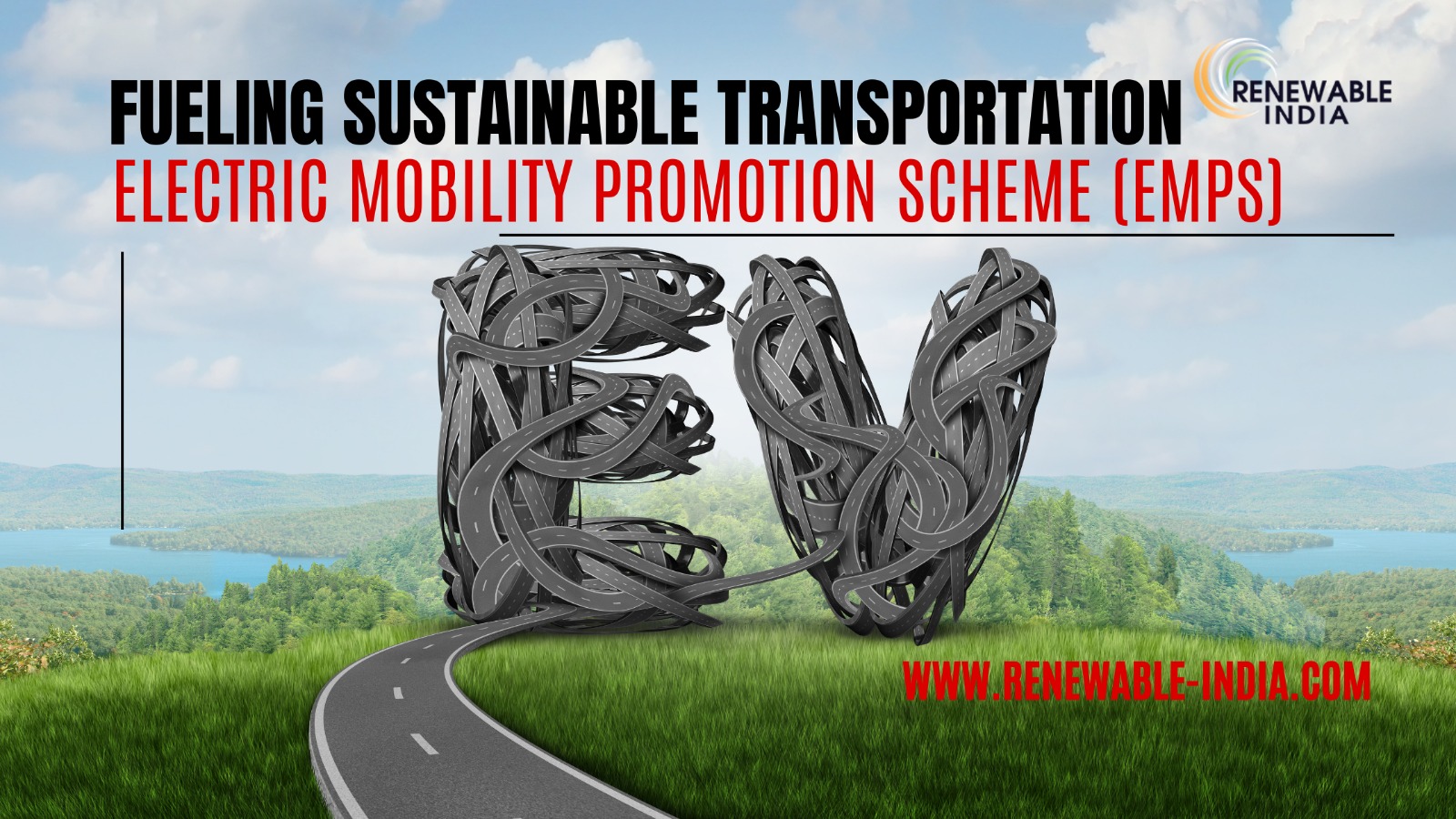
On March 13th, a monumental step towards a greener, more sustainable future was taken as the Narendra Modi government unveiled the Electric Mobility Promotion Scheme (EMPS) 2024. With a laser focus on promoting eco-friendly transportation options, this scheme aims to revolutionize India’s mobility landscape by encouraging the widespread adoption of electric two-wheelers (e2W) and three-wheelers (e3W) across the nation.
Under the EMPS 2024, the government has set its sights on incentivizing the purchase of electric vehicles (EVs), making them more accessible and appealing to consumers. By offering financial incentives, subsidies, and tax benefits, the scheme aims to bridge the gap between conventional and electric vehicles, paving the way for a cleaner, more sustainable mode of transportation.
But it’s not just about reducing emissions and combating pollution – the EMPS 2024 holds the potential to revolutionize India’s economy and create new opportunities for growth and innovation. By embracing electric mobility, we’re not just embracing a cleaner future, but also unlocking new avenues for job creation, technological advancement, and economic prosperity.
In this significant move towards fostering sustainable transportation solutions, the Indian government has unveiled the Electric Mobility Promotion Scheme (EMPS), marking a paradigm shift in incentivizing electric vehicle (EV) adoption. With a renewed focus on promoting green mobility, EMPS brings forth a comprehensive framework aimed at bolstering the EV ecosystem while addressing critical concerns such as battery longevity and after-sales service.
(i) Battery Warranty Assurance: EMPS mandates electric vehicle manufacturers to provide a three-year warranty for batteries, which accounts for nearly 40% of an EV’s cost. This warranty assurance instills confidence in consumers and underscores manufacturers’ commitment to product reliability and longevity, thereby mitigating concerns about potential battery degradation and replacement costs.
(ii) Enhanced After-Sales Service: The scheme emphasizes establishing an ecosystem for after-sales service of batteries, extending the lifespan of EVs. By facilitating easy access to battery maintenance and replacement services, manufacturers can address consumer apprehensions regarding maintenance costs, further augmenting the attractiveness of EVs in the market and bolstering consumer confidence and uptake.
(iii) Promotion of Localisation: EMPS underscores the importance of high degrees of localisation in the manufacturing process of subsidized EV models. By incentivizing localisation, the scheme promotes indigenous manufacturing, stimulates job creation, and enhances the competitiveness of the domestic EV industry on a global scale, aligning with the government’s vision of fostering self-reliance.
(iv) Tailored Warranty Requirements: The scheme introduces specific warranty requirements tailored to different categories of EVs, acknowledging diverse usage patterns and durability expectations. For instance, two-wheeler buyers are entitled to a comprehensive three-year or 20,000-km warranty, while three-wheelers must offer an 80,000-km warranty, ensuring warranty provisions meet the specific needs of consumers.
(v) Alignment with Sustainability Goals: By replacing the existing FAME II program, EMPS represents a strategic evolution in accelerating EV adoption and mitigating carbon emissions. Promoting EV adoption contributes to reducing vehicular emissions, mitigating air pollution, and improving public health outcomes, aligning with global sustainability goals and positioning India as a proactive participant in the global transition towards cleaner transportation alternatives.
(vi) Catalyst for Innovation: EMPS has the potential to catalyse innovation and technological advancements in the EV sector. By incentivizing manufacturers to invest in research and development aimed at enhancing battery efficiency and durability, the scheme lays the groundwork for a more robust and resilient EV ecosystem, fostering competitiveness and driving the emergence of cutting-edge technologies that redefine the future of transportation.
In India’s quest for a sustainable and eco-friendly transportation landscape, the role of the government stands paramount. Enter the National Electric Mobility Mission Plan (NEMMP), a visionary roadmap aimed at maximizing the country’s electric vehicle (EV) fleet by the year 2030.
At the heart of the NEMMP lies a commitment to incentivize and promote the adoption of EVs across the nation. The Indian government has rolled out a suite of measures to support manufacturers and buyers alike, making the transition to electric mobility smoother and more attractive.
One of the key pillars of the e-mobility policy is the provision of incentives for both manufacturers and buyers of EVs. From tax exemptions to subsidies, the government is pulling out all the stops to make EVs more accessible and affordable for the masses. By reducing the financial barriers associated with EV ownership, the aim is to accelerate the adoption curve and drive widespread acceptance of electric vehicles.
As India charts its course towards a greener future, the government’s unwavering commitment to e-mobility underscores its dedication to fostering innovation, promoting economic growth, and safeguarding the environment for generations to come.
The wheels of change are in motion, and the journey towards e-mobility is well underway. With the Indian government leading the charge, the road ahead is paved with promise and potential, offering a glimpse into a brighter, cleaner tomorrow.
The Electric Mobility Promotion Scheme (EMPS) represents a pivotal milestone in India’s journey towards sustainable and inclusive mobility solutions. By incentivizing battery warranties, localisation, and after-sales service provisions, EMPS not only enhances consumer confidence but also fosters a conducive environment for the widespread adoption of electric vehicles, driving positive change and ushering in a new era of clean and efficient transportation.
Leave a Reply